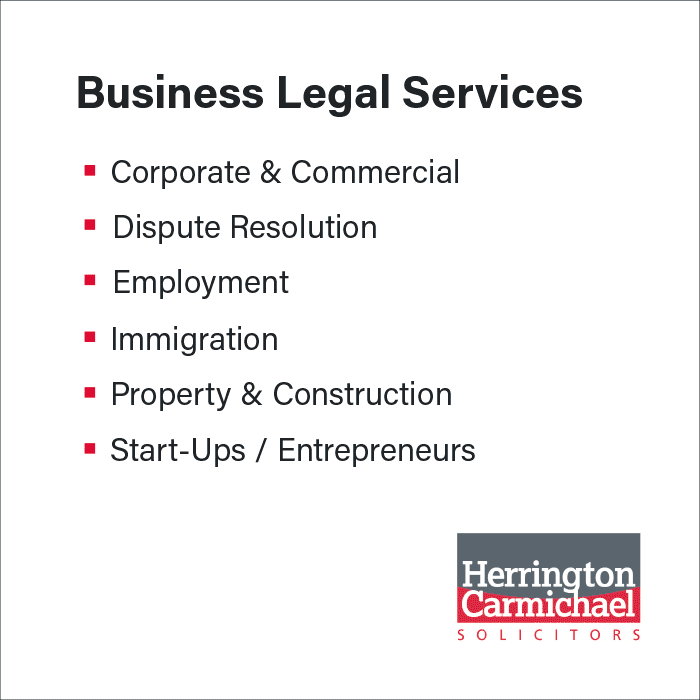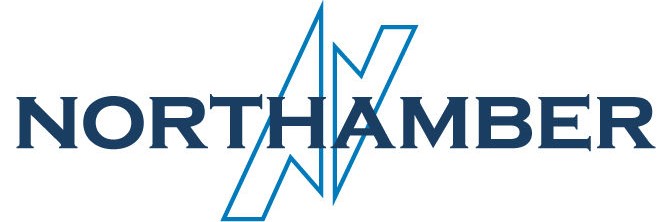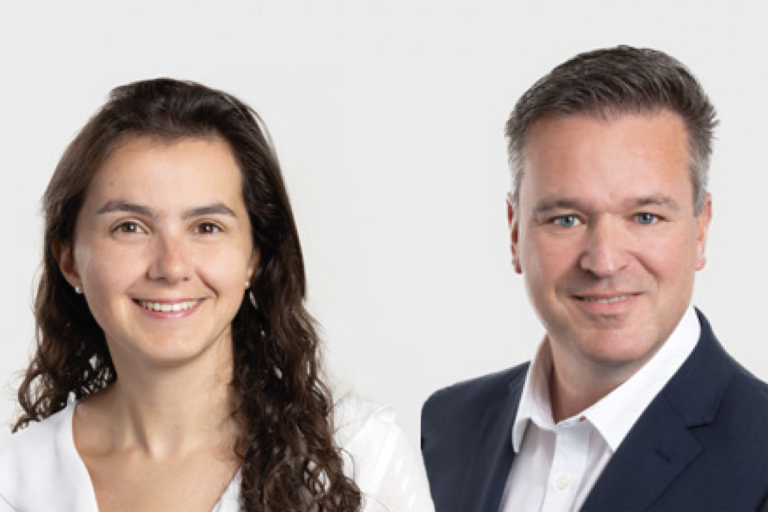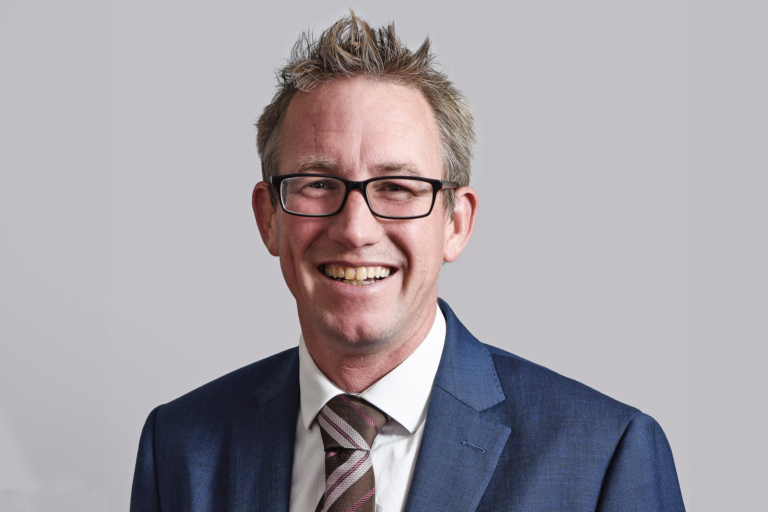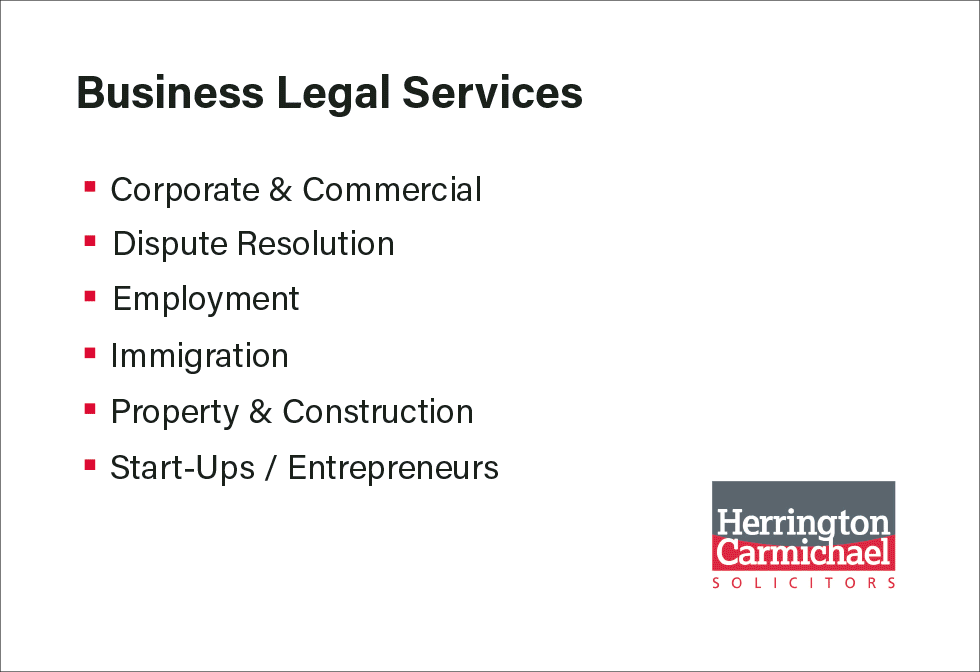SUCCESS IS IN THE MIND PODCAST: Listen to Melanie Goldsmith - Smith & Sinclair Interview
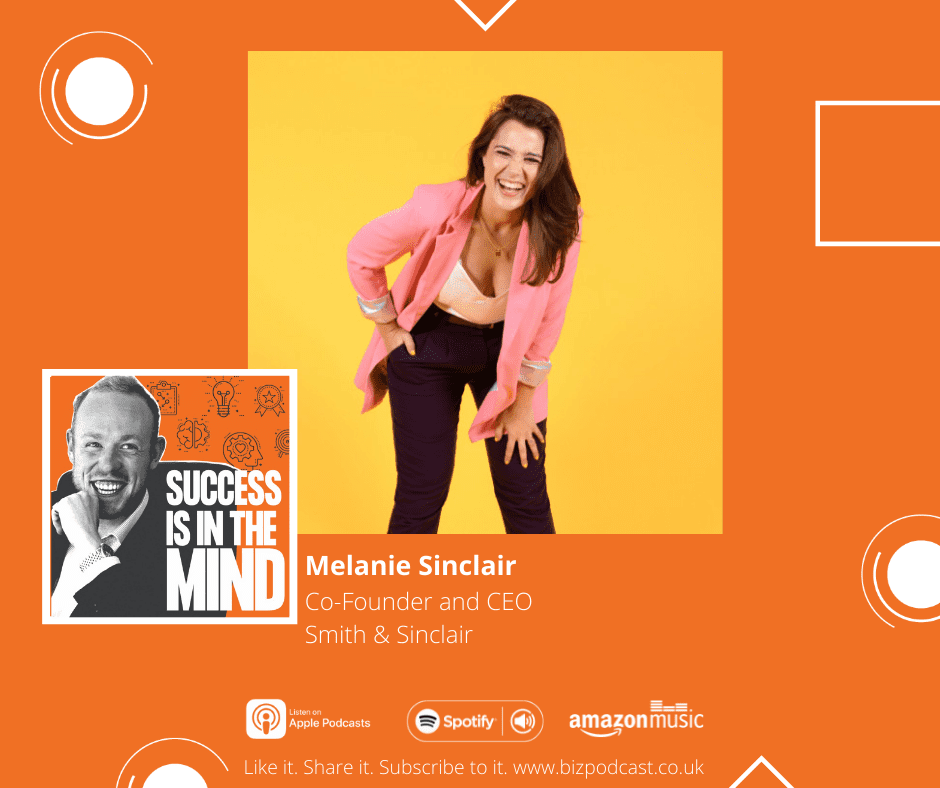
Initially a by-product of a dating board game (pre Tinder/Bumble) Smith & Sinclair brought to market alcoholic gummy sweets. 3 days after launching Smith & Sinclair landed an order for over 20,000 sweets. With little infrastructure, no kitchen facilities or manufacturing arm Melanie, her family and her friends spent 2 months hand making their first sizeable order!
Founder and Entrepreneur Oliver Bruce speaks with owner operator entrepreneurs, innovators and leaders about their failures, barriers, mistakes, passion and persistence to achieve their vision
After leaving her job in the events space Melanie sold a family heirloom for what she thought would be a few thousand pounds, it wasn't... This seed capital is what set Smith & Sinclair off on the right foot.
Manufacturing alcoholic sweets however come with it's complexities. From having stock held ransom by their first manufacturer to learning how to expand into the USA as well as brokering deals with some of the UK's biggest luxury stores Melanie and her team have really come up against almost every hurdle.
Smith & Sinclair recently diversified into CBD products selling and buying back their business in the space of the last 12 months (2019/2020)
You can listen to the latest podcast with Melanie Goldsmith - Smith & Sinclair Interview here via your preferred provider either Apple or Spotify
Apple - E5: Success Is In The Mind: Melanie Goldsmith - Smith & Sinclair Interview
Spotify - E5: Success Is In The Mind: Melanie Goldsmith - Smith & Sinclair Interview
Full transcript below
Melanie Goldsmith:
I think at the beginning, everyone thought that we were crazy. And at the beginning, everyone was like, "but the children! They'll get their hands on it and all be drunk!" And we were like "... um... no?"
Oliver Bruce:
Success Is In The Mind is proud to have partnered with, and be supported by, the Great British Entrepreneur Awards and Community, a programme that recognises, celebrates, supports, encourages and champions entrepreneurs in Great Britain. Hello, and welcome to another episode of Success Is In The Mind with me, Oliver Bruce. If you’re new to the show, we’ll be discussing with current owner entrepreneurs, their failures, mistakes, passion, and continued persistence in the face of business adversity. Not all entrepreneurs have completed their vision just yet. Some are just starting out. I want to give you a sense of business reality in a world full of idealism. What does it take to become successful, to grow a brand, or to start a business? Join me to find out from those that are currently doing just that. just a little disclaimer for this podcast: if you hear pots, pans and boxes being moved in the background, it's because Melanie's currently moving from New York to London and she's having her house packed up, so do excuse it. But anyway, it's a great interview nonetheless. Today I'm joined by the real life Willy Wonka, with a splash of alcohol and a dash of sugar, Melanie Goldsmith. Melanie started her business life in early 2014, with a very clear vision which was to "make adult more fun". Having been interested in sweets from a very young age like us all, her by-product of a board game dating series quickly turned into a business reality after selling thousands of pounds worth of leftover sweets in just a few weeks. Upon launching her new business Smith & Sinclair with business partner Emile, the two saw rapid growth within three days of launching their website, enjoying orders of over 20,000 sweets, which took them two months to manufacture, even pulling on friends and family for help. I'm looking forward to this one. Melanie, welcome to the show.
Melanie Goldsmith:
Thank you! Thanks for having me.
Oliver Bruce:
No, no, thank you. And you're dialling in from New York?
Melanie Goldsmith:
Yes. From Brooklyn.
Oliver Bruce:
And that's because you're living out there at the moment and moving back to London?
Melanie Goldsmith:
Yes. I've been out here for a year now living stateside and with everything going on, it just made sense for us to go back to the UK.
Oliver Bruce:
And what was the reason for going out there in the first place a year ago?
Melanie Goldsmith:
So we were acquired by a publicly trading US company with the intention for them to own Smith & Sinclair and spin out new products under that umbrella. And then to also launch a CBD specific brand, which we did call Pollen. So to open the US office for both brands, to accelerate kind of retail strategy out here, to build a team independently of the UK team to run the whole of the US. And I did that, and now it's time to move back to the UK because we have now spun Smith & Sinclair back out of the company that bought us, so now it's independently owned by us again. Sold Pollen on, and it just makes sense for us to be UK central again.
Oliver Bruce:
Because there must be a huge amount of regulation that is different in America than it is obviously in the UK. And I suppose with regards to those rules and regs; what do you guys come under? It's not alcohol? Is it food? What is it?
Melanie Goldsmith:
We always come under confectionary. There is sort of an ABV you have to stay under to kind of be a chocolate liquor category, which is where we're at.
Oliver Bruce:
Okay. Fine. And when you, I suppose, when you're trying to pitch this to people and you're going, "okay, so we're alcoholic sweets", do you often get laughed out the room or do they go, "this is really interesting. Tell me more"?
Melanie Goldsmith:
I think at the beginning, everyone thought that we were crazy. And at the beginning, everyone was like, "but the children! They'll get their hands on it and all be drunk!" And we were like "... um... no?". I mean, we've done very specific measures in our product and packaging. So each gummy is actually individually wrapped in a sachet that's opaque, and then those are in an opaque box. And so there isn't that worry that if it sits on the retail shelves, a child will see it and want it because they won't even know what it is. And we've worked really closely with the regulatory boards to kind of get that sign off and go overboard. And with retailers, I think, you know, their biggest concern is how they regulate the purchasing price point. So, you know, in our bigger retailers, like John Lewis, they would just infiltrate the barcode. So when the, you know, sales person checks them out, that kind of flag comes up to check their ID to make sure they're 18.
Oliver Bruce:
You went through university back in the day and studied cultural criticism and music. Now, I suppose, that isn't a business degree and now you're trading internationally, and you've got, as you said, very well known clients, big retailers; Harrods, Selfridges, you know, shops of those ill. I mean, how did you learn all of this? Did you just jump into it?
Melanie Goldsmith:
Yeah. Baptism of fire has always been kind of my way. You know, it's one of those funny things where ignorance can sometimes be bliss. Like I hadn't been told what to be scared of. I didn't know anyone really in business or who'd scaled in that very traditional way of, you know, doing a friends and family investment round, getting a product to launch. Then once you're starting to trade doing a series A, doing a series B, C, D, and so on, and kind of accelerating in that very traditional VC structured route and also America and the UK do it very differently. I think there's a lot more money in the US up for grabs and also a lot more encouragement for entrepreneurial-ism out here. I think in the UK we stifle at quite an early stage, which on the one hand means probably more businesses that get past year one do survive longer term because it's so much harder in the UK to survive year one, but vice versa, it means we're probably stifling a lot of creativity by not giving much opportunity to get off the ground. And for us, because we didn't know that we had nothing to lose. We right at the beginning, I sold a sort of family heirloom to get us off the ground with a bit of cash.
Oliver Bruce:
Oh God. What was it?
Melanie Goldsmith:
It was a bracelet that I'd inherited and didn't, you know, I was never going to wear it. It was ugly and not my style and very eighties ostentatious. And, you know, I thought someone's going to buy this for a couple of grand. We ended up actually selling it for £20 grand.
Oliver Bruce:
Wow. Had you known, would you have worn it?
Melanie Goldsmith:
I'm not a very materialistic person. So things like that, I'm like, great! I got £20 grand and started a whole business, and I'm here where I am now as a result. And I, the whole family were, you know, much more pleased with that. Then it's sitting in a safe somewhere.
Oliver Bruce:
And I admire that hugely about you because- and your mantra, I suppose, from day one has very much been to make adult more fun, which I think is a great, sort of, reason to go into business. But I suppose Smith & Sinclair, as it's known today, wasn't the vision when you started, because it was a spinoff of a dating board game, which again, I'm fascinated by how did that work?
Melanie Goldsmith:
So I was in a really awful job at the time. I was really unhappy in a PR job, and Emile was a chef and he was working insanely weird long hours, you know, working until three in the morning and then getting up at five to do breakfast shifts. It was pretty brutal. And, you know, we're seeing friends dating in that sort of awkward world where online dating, wasn't what it is now. It wasn't the ease of Tinder and Hinge and Happn and Bumble, it was Guardian Soulmates and match.com and it was still in the world where you thought you were gonna get murdered if you met up in person. At the time, it was a really awkward- if so many of our friends were moving to London, everyone was trying to kind of get in their like early twenties, you know, journey. And for me, play is such an important part of who I am. Like, I love board games. I love silliness. I love, you know, quasar [laser tag], quad biking, like all the stuff that I didn't grow out of for some reason. And we used to host, just at our flat, board game nights all the time. Yeah. And so the sort of six people became 12 people became 30 people 'cause people were just bringing friends of friends and it became this kind of hotspot to meet people like you, who you didn't know before. And we couldn't fit thirty people in our flat. So I just sort of thought one day, well, I could charge 10 quid and get people to do this, but in a bar where there is room and we could make it more of a singles thing because so many people were coming because- to exactly that, to meet people, it just performed exactly how we wanted it to. And then because of the people that were coming, they were all very London centric creatives, you know, they worked in ad agencies and events and things like that. So we started getting inquiries about, you know, I came to your night and I'd love to, you know, order 200 Ballantine whiskey gummies because Ballantine whiskey is my client at an ad agency and I want to impress them.
Oliver Bruce:
Right.
Melanie Goldsmith:
And so we started doing these ad hoc and then I quit my job because I was miserable and Emile went agency so that he could have flexible hours. And we started doing a couple of events here and there, you know, we both picked up some work where we were like, I, you know, worked the door for a really small private members club, and I asked them if I could sell them at the door and, you know, we were making enough money to kind of get by and keep buying ingredients. And then we had a market store, which as you said, is where Imbibe Live, who are the biggest alcohol trade show in the UK, got in touch. And they ordered 20,000 for their marketing campaign that year. And it just kickstarted us.
Oliver Bruce:
Wow. So it was very much the right place at the right time, I suppose, but actually with a really unique and really fun, different product, that's not trying to be too serious. It's actually just trying to allow people to have a bit of fun. And I suppose that 20,000 unit order, that could have toppled you in the early days, because I suppose you obviously used your friends and family to help manufacture and make it, but if you had another 20,000 unit order, would that have then toppled you, you'd have fallen over, you wouldn't be able to fulfil it and you'd have lost, obviously, clients because of that. How did you deal with that?
Melanie Goldsmith:
I mean the first 20,000 was pretty savage. There was no kitchen space for flexible hire except one, which was like a series of very high tech production kitchens all the way out in Park Royal. And you rented it by the hour and it was too expensive. So what we ended up doing was contacting kind of local churches and synagogues because they were all licenced for food and, you know, health and safety. But none of them really used the kitchens during the day. So we would go in make, you know, a thousand gummies, pack them into my Aygo, drive them back to my flat where we had kind of baking parchment, set up around all the floors, would lay them out because the unique thing about our product is, it's very high liquid, which means it needs to cure. And you need to leave it for a couple of days to kind of stabilise the molecular structure. Otherwise they become really syrupy and kind of will dissolve at room temperature and we needed them to last. So we did that except we weren't able to make enough every day. And eventually my mum's husband works for school that were on Easter break. So they let us actually take over their school kitchen for three solid weeks, which meant we could kind of do days and nights. And we were, you know, ahead of the game, we were crushing. It, we'd made sort of, you know, 7,000 over two days. And we needed lots of dehumidifiers around the space 'cause it was, you know, a school kitchen. Anyway, we went home and we came back the next morning and a cleaner had been in over the night and turned off all of our dehumidifiers, which meant that 7,000 gummies had kind of all turned to mush.
Oliver Bruce:
No way. And so how much was that worth to you back then? What was the sort of revenue there?
Melanie Goldsmith:
Well we'd been paid up front for the gummies, because they'd been really kind in how we had no kind of cashflow. Well they paid us 70%; they paid us a large sum upfront and we weren't really going to make profit on it.
Oliver Bruce:
Sure. So you obviously have the £20,000 from the sale of your bracelet, which was a lucky win to a certain extent. At what point did you run out of that money? What was the burn rate on that when you were starting?
Melanie Goldsmith:
Well, we were kind of profitable from day one because me and Emile worked for just our bare minimum costs to be covered and didn't have a social life. We found eventually a kitchen, which was in the top floor of an army reserve centre, it was very odd, but it also was cheap as chips. And so we just kept our overhead so low. We didn't have any full-time staff for the first year and were working a lot of events, which were obviously quite cash heavy. So we worked a secret cinema. We worked with private events. We did sort of consumer trade shows. So we didn't actually raise money for two more years after the initial. So we set the company up in 2014 and didn't raise money until 2016.
Oliver Bruce:
Wow. So that £20,000 lasted you essentially about 24 months?
Melanie Goldsmith:
Yeah.
Oliver Bruce:
I looked on your website and, what was it, in 2017 when Trump was running his, I suppose, presidential campaign, which he's doing again now, you released lollipops that said, "Trump sucks". Now I think that was brilliant, were they successful?
Melanie Goldsmith:
They were very successful. The whole point of the campaign was we actually needed cash in that month. And we've done a lot of, over the years, a lot of charitable initiatives with specific skews. You know, we recently did our Lovebox for the month of Pride where, you know, 20% of all sales went to LGBTQ charities and we've done stuff for men's mental health charities because Emile suffers with mental health challenges. So we've done a lot over the years, but that was, to get cash in, but we didn't necessarily need the profit from it. We were willing to donate and we wanted to donate everything to Planned Parenthood. The funny thing was when we made the lollipop- so Tom who's my husband, he's actually a sculptor by trade, but that's like saying I'm a musician by trade so neither of us actually do it, but he did make these Trump moulds that looked identical to Trump's head. And we made about 200 lollipops over the weekend and we got one of my friends to do a funny little video. And the whole point was if we sold 200 lollipops at five pounds each, it was enough money to kind of get us through that month. And then once we got the rest of our cash in that had been kind of overdue, we could give the profits to Planned Parenthood and we made that clear with the initiative that all profits would be going. And it just so happened on that Monday, Trump pulled his funding from planned parenthood. So there was loads of news and actually it got picked up by George Takei, who's a big Star Trek celebrity out here, he's got 20 million followers on Facebook and because he posted our video, it went viral. We had about four and a half million shares of the video in 24 hours.
Oliver Bruce:
That's incredible. I mean, that's expensive as a campaign if you had to pay for it. But, and that was an accident?
Melanie Goldsmith:
That was an accident. We ended up sending about £20,000 worth of lollipops. We couldn't make them, we ended up having to outsource the manufacturing.
Oliver Bruce:
No way, but there was still margin there to be able to donate to the organisation of your choice?
Melanie Goldsmith:
Yeah we donated about £7,000.
Oliver Bruce:
I was thinking last night when I was researching you, I thought, well, what can we do for this campaign? And I thought, okay. So there's those sweets that you used to be able to have as whistles and you used to be able to blow them for instance, and I thought we could have maybe "Trump Blows" in the 2020- something like that? Would that work?
Melanie Goldsmith:
That's funny. Yeah [laughs]
Oliver Bruce:
[laughs] Let's do that one. We can give all the donations, all the profit to the same charity.
Melanie Goldsmith:
That's really funny.
Oliver Bruce:
[laughs] You have that one for free Melanie.
Melanie Goldsmith:
Thank you!
New Speaker:
No worries at all. And obviously you've now, as you said earlier, diversified into CBD, what was the reasoning behind that? Because again, it's a new market, it's a market that's growing in theory, but it's not a market you've had any experience in; why?
Melanie Goldsmith:
I mean, I didn't have experience in alcoholic gummies before starting that!
Oliver Bruce:
Well no, that's a fair point [laughs]
Melanie Goldsmith:
I think, well, there's lots of reasons. So Emile, and really openly, discovered CBD kind of two years into his mental health journey. He, you know, he went to CBT therapy and lots of people there were interested in CBD and cannabinoids support. And so he was sourcing it for himself. And just honestly, in Europe, he just couldn't find a decent product. It was all really inconsistent, it wasn't correctly labelled, it tasted bad. And there's been a lot of very difficult times and not short periods, you know, years of really challenging times and to find a product that you can take consistently, that's easy, that helps you kind of stabilise your brain chemistry, your hormones, you know, just allows you to be a bit calmer. I was totally bought in as well. And edibles was a huge market in the U S and I didn't see a single kind of vegan gummy that was good. And we'd obviously spent years developing our recipes that are very proprietary to what we do. And, you know, we thought actually there's a market for creating a high quality and cost-effective accessible gummy to the EU market. And at the same time, you know, some of our early investors in the business were involved in a cannabis company in the US and so I was able to do a lot of research and understand it and educate myself on it more, and when we were acquired, the company that acquired us was in cannabis and they bought into the sort of foundation of what we were creating with Pollen and then accelerated our launch to market for it.
Oliver Bruce:
It's brilliant. And you, and I suppose Emile as well, you've had quite a turbulent history and indeed there's still elements of turbulence going on. For instance, when you were younger, you lost your dad sadly, and Emile obviously suffers from mental health issues. Now, I suppose those two very serious things is that almost something that you take you look at and you go actually screw it. I'm going to have as much fun as I can because, you know, even if I were to drop down tomorrow, I want to know I've lived my life to the full, does that spur you on, what you've been through?
Melanie Goldsmith:
I think, you know, Emile and I are both very centred. We're both quite- not impulsive people, but we're both very passionate people in different ways. Emile's far more of a kind of- he processes in a very different way. I'm much quicker and much more action focused, Emile need more time to digest information. He's probably more introverted in a group situation. And so we also balance each other to not let the snowball go out of control. And we also took very distinctive roles at the very beginning, which for us was very important that we didn't step on each other's toes. And because in kind of- after the second year of the business Emile didn't want really anywhere near the kind of control of a business partner, he wanted to stay a co-founder, but focus on what his talent was. So he completely, his job was focused on new product development and innovation. And I just took on a kind of sole CEO role. And that was good because it allowed us to take our experiences and, you know, penetrate what we were good at, rather than cloud each other's judgement.
Oliver Bruce:
'Cause it's interesting how you're so much of, I suppose, the frontman, the front person for your brand and as much as Googling Smith & Sinclair for instance comes up with primarily yourself and there's some great articles out there, but when you started, who was the driving force behind getting that PR, getting that branding out there, 'cause you've got nearly 30,000 followers now on Instagram, which is a huge number. How do you go about doing that when you started? Did you pay for anything?
Melanie Goldsmith:
No not at the beginning. I've always been the driving force of the brand and marketing, but we've also had brilliant head of marketing people in our team. I mean, we had Fran Pierce who's now started up her own consultancy company, but she was a significant driving force over the last two years and totally balances her creativity with functionality of data and accessing those larger numbers of social media engagement. At the beginning, we didn't know- we were so experienced focused that we did these pop-ups quite regularly. And they garnered us a really big fan base because this was kind of pre experiential marketing. And you could come into kind of our adult candy shops and you could press buttons that really smells of cocktails. You could have candy floss that dissolved to make your cocktail in front of your eyes. And it was all different. And so we had- and you know, our social media has always been really shamelessly what we call camp and fun and very kind of like self-aware, you know, we're not- we're a really diverse team. So we've always been very grateful for how that gets articulated externally as well, which makes the audience wider and more engaged.
Oliver Bruce:
And obviously going, I suppose, from the manufacturer, from when you were doing that through to retail, how was that transition? 'Cause obviously you're in Harvey Nicks, you're in John Lewis, Selfridges, Harrods - big, big brands. How did you get into them?
Melanie Goldsmith:
So Harvey Nichols were really supportive from an early stage. So we'd been working on a project with a company called Hayman's Gin, and we'd been making them bespoke Hayman's Gin and tonic gummies, and they were using them as kind of pitch tools for different retailers. And when they pitched Harvey Nichols, Harvey Nichols was so interested in the gummies that we actually got put in touch directly with the buyer who wanted to be our first exclusive retailer. So we got into Harvey Nichols kind of, we made our first consumer packaging for them.
Oliver Bruce:
Was that your first in then, Harvey Nicks?
Melanie Goldsmith:
Harvey Nichols was our first in, yeah and they were- we're still with them. You know, they're a great retailer. And in terms of manufacturing, that's been- by far, that was the hardest hurdle to overcome. We were manufacturing them ourselves for the first three years. And then we made a really unfortunate outsourcing decision. It went horribly wrong and we lost a lot of money on it.
Oliver Bruce:
So what was the mistake? You outsourced it to a manufacturer. Why did it go so badly wrong?
Melanie Goldsmith:
We didn't leave ourselves enough time to really work through the recipes with them to give ourselves a proper cost evaluation. We trusted them. We'd given them a kind of benchmark of what costs we needed and they promised us, you know, yeah, we'll hit that. No problem, no problem, no problem. But they knew they had us by the neck because we had to, you know, hit a timeline to get into retail. And then what they eventually did was basically up charges 300%.
Oliver Bruce:
So what did you do then? If you lost your margins, you lost your investment. Did you get the product?
Melanie Goldsmith:
Well, they were holding our inventory and we needed to get it to retail. So we had to, yeah, we had to pay for it.
Oliver Bruce:
That's horrendous. And you quickly obviously pivoted to a new manufacturer and, you know, that was happy days from day one? Were there teething issues there? You learnt from your mistakes obviously.
Melanie Goldsmith:
So we brought it back in-house temporarily just because we didn't want to make the same mistake of just rushing to another manufacturer. So we really brought it in-house so we could spend six months working it through with the new manufacturer and yeah, to this day, we're still really happy with them and they're actually going to be a kind of partner more substantially for Europe moving forward.
Oliver Bruce:
That's incredible. And looking into the European market, I suppose, and with the dreaded Brexit around the corner, which it is, is that gonna affect you guys in any way or have you got a sort of holding in other countries that allows you to not ne hit by that?
Melanie Goldsmith:
So we've done a kind of two-pronged strategy. So because we make the gummies in Europe, what we're going to be doing is withholding some stock and keeping it in storage in Europe so that we can then distribute it across European countries without having kind of import costs into the UK and then export costs back out to Europe. So that's how we're going to be working with our manufacturer more closely. In terms of are we going to be hit by import taxes; it's very unclear from the government, exactly what that will be for our type of product. But what we have done is scaled our manufacturing to such an extent because we actually, for America, we're still purchasing our products from Europe. So the scale of inventory has allowed our cost to come down quite substantially anyway. So we've got a bit of room in the margin for kind of whatever Brexit throws at us.
Oliver Bruce:
And when you move back over to the UK, what does it hold for you over here then? You obviously- moving from America, you bought back your business, you have that kind of a hundred percent entity now. What are you going to do over the next 12 months?
Melanie Goldsmith:
You know, I very much want to, because my mind has been across two big countries with two different brands, and now I'm back on one brand and the way we're working with, you know, the American team is to streamline with sales agents so that we don't have like employed sales teams because it's actually just, it's too big. So America is off to a really great start. And in the lead up to Christmas, I think it's just going to get bigger and bigger. So, you know, I want to make sure that we maximise our exposure in the lead up to Christmas. It's kind of a number one gifting item. We're going to be focusing on sort of, evolving the website to be a more one-stop shop for gifting. So allowing people to kind of do gift wrap and card purchasing and have that built in to the website and to kind of re engage sort of the way the teams work in a post COVID world, you know, what can we be doing to improve?
Oliver Bruce:
Well, what do you think the post COVID world looks like for you guys?
Melanie Goldsmith:
I mean, we've always had a flexible working environment where people can request days to work from home. So I don't see, I mean, I hate working from home 24 hours, I just, I really like the energy that a physical team builds together. We're trying to figure out, because our office was also our lab and a bit of warehouse spacing, it was quite a functional space. So how we do that in the future's still up for debate and then retail, we're just having to pivot the whole business to a much stronger e-commerce proposition because people don't physically want to be in retail in the same way. Retailers aren't opening up in the same way.
Oliver Bruce:
It's so inspiring to hear your story. And as much as you are very much, "just get up and go", and "what's the worst that could happen", "I'm going to make the best of a bad situation", all those kinds of analogies to a certain extent, but looking back, I suppose, over your career, what has been the worst thing and the biggest mistake that you have made personally in business?
Melanie Goldsmith:
I would say recruitment probably I think I really, really struggled with building a team for years. For years, I just couldn't get the culture where I wanted it to be, I couldn't manage the way I wanted to, you know, it was almost like we went too one way. So at the beginning, when we couldn't afford to have kind of a structured hierarchy, everyone was just at one level. It meant that we had quite a really ambitious, but I want to say not arrogant, but everyone thought they could do everything, which was great. But it also meant that kind of no one was spending time anticipating mistakes. No one was investing time into back-channeling or plan Bs. Everyone was just very plan A, and it just created a very ballsy, but you know, very toxic and kind of chaotic structure. And then we kind of went the other way where we started putting in like senior management roles, but we got a few people that didn't gel well and had a bit of tyranny, you know, on the other side. And so it took years and then we just had, you know, about two and a half years ago, it just clicked. And we built in this brilliant senior management team who just worked incredibly well together. The strategy suddenly gelled, the execution was spot on, and you know, it just- the pain of four years of not getting it right, has stuck with me I would say the hardest.
Oliver Bruce:
Looking at, I suppose, your sort of CSR policy, that might be the wrong term, but working with charities and social causes, how important is that to not just your business, but any business to actually have some level of social cause and giving back to I suppose, charities and the community?
Melanie Goldsmith:
I think it's so important. I think if you're a for profit company, I'm not saying that, you know, you have to give a percentage of every sale forevermore because it really can affect, especially as startups, you know, viability to survive. For us, it was very much about campaign based charitable initiatives that worked appropriately for our team. So, you know, we'd always have the conversation about which charities we wanted to support and what would be the appropriate campaign for them. Because what I also don't agree with is sort of, you know, when brands that have nothing to do with, I don't know, women's health and, you know, a male managed senior management team, and then they give a percentage of their profits to it, it just feels really disconnected from what their actual kind of sales intent is. Whereas all the initiatives, you know, we've done so many events, so much engagement with, you know, everyone from the models in our campaigns to actually where we sell the product in the LGBTQ community. It made sense that we give back to that community in a really genuine way. And also we didn't just work with a big charity. We worked with the Vauxhall Tavern, which is, you know, one of the original venues in London that is about to close it, you know, is at risk of closure because of COVID. So it felt really personal and really sort of important to actually get cash in their pockets rather than kind of lining a big company's ad campaign.
Oliver Bruce:
And looking at, I suppose, gender inequality, which is so prevalent at the moment, have you come up against any issues, any sort of discrimination, because you're a successful female in business, and indeed when you were starting and weren't necessarily successful, but were still a female in business, did you get pushback? Did you get people just, you know, not wanting to talk to you because of that?
Melanie Goldsmith:
No- well, I haven't had people not wanting to talk to me. What would- probably more challenging was getting on actual paid public speaking gigs as a woman, but I'm not someone who will sit around and kind of ruminate on whether it's because of my gender, because it can be lots of reasons, but the fact that you see less women out there doing it, and you see less women getting funding, you know, I would go to pitch events where the numbers were very 50/50, if not more weighted towards women pitching. There sort of is I guess, proof in the pudding, but it's challenging for everyone. And I personally mentor and advise quite a few small women's startups at the moment, because I'm really honest about how hard it is and kind of where the biggest watch outs for me are. Entrepreneurial-ism is a celebritydom that's become very kind of fashionable and cool, and people love the phrase "I want to work for myself. I don't want to line someone else's pockets". And what I kind of reiterate to everyone is you're not really working for yourself. You're working for your customers. You're working for your team, you're working for your investors. And it's a very different kind of stress because the first salary that's getting cut is yours. So it's all well and good saying you don't want to work for someone else, but if you need financial stability starting a business is probably not the one.
Oliver Bruce:
You know, if there was a takeaway for people listening to this that are looking to start up in business, that haven't yet done so, or indeed are just about to do so, what would that be?
Melanie Goldsmith:
Biggest sort of advice I always give people is figure out if your lifestyle is what you want it to be now, because some people just want to change of job. And I think they look at running their own business is like having to reduce the effort of building your CV out, and reconnecting and networking, it's almost, they think it's a shortcut. And it's interesting. So I've had quite a few friends recently wanting to start their own things. And my biggest advice is try and go part-time in your current job so that you don't lose all financial stability of an income, and you can give it that sort of deadline of working a five day week on your own business in two days, to see how much work it really is, because I think people underestimate the workload quite significantly and also do a personal budget, you know, how long could you survive on no income for, because the reality is you'll have no income for at least one year. You might have no income like I did for pretty much two years, and I made sacrifices. And when you've got mortgage or children or, you know, certain lifestyle expectation of holidays, the reality is when that gets cut out, is that going to make you more unhappy than you currently are now? And if it is like, how can you review your own happiness? Because I've just met so many people that have breakdowns in their own business and it is isolating. And it is something that people won't ever really empathise with because there's a bit of a, "well, you chose to do it so don't complain to me" mentality, which I also get like you do, you know, I chose to do this and there were weeks where I'd come home and just hysterically cry, go to sleep, wake up, be sick, and then kind of get on with my day again, because it was just, I was in absolute survival mode and people don't talk honestly about it. I'm actually doing like some short stories at the moment, just kind of to cathartically get out some of those really traumatising moments, but also put it in a spin so it's kind of funny because there were times which were just so horrific, you have to laugh.
Oliver Bruce:
And where are those stories going to be aired? Or are they just for you? I mean, are they going to be public? Can people see them anywhere? Read them?
Melanie Goldsmith:
I don't know. I mean, I'm putting them- I don't want to put myself under pressure to be like, "I'm writing a book" because the whole point of whatever I do next, you know, like you said, I've reached a bit of a chapter closing having sold and gotten it back and, you know, potentially I'll sell it again. But it's given me a financial stability I haven't had for years, it's given me a sort of pride moment that I haven't had since starting. And I want to kind of enjoy that and not rush straight back into overwhelming myself again. But I guess it might be an opportunity for publishing them. They might just be for me.
Oliver Bruce:
Yeah I mean, it's so impressive what you've done and I wish you every success moving forward, whether that's buying your business back again or indeed selling it and then buying it back or writing a book or indeed, you know, starting a podcast. But honestly, Melanie, thank you very much for coming on. It's been fascinating and a lot of fun.
Melanie Goldsmith:
Thanks for having me.
Oliver Bruce:
To check out more about Smith & Sinclair, head over to their website smithandsinclair.com or to see the recent business which Melanie has sold head over to withpollen.com, which is all about CBD. Join me next week, where we'll be discussing more about failures, mistakes, passion and persistence with another inspiring owner entrepreneur who is currently in business. Thanks once again for listening, take care. Thanks for listening. If you've enjoyed this programme, then please show your support by subscribing via Apple Podcasts and all other major podcast streaming services. Why not share it with at least three friends and of course, make sure you tune in next week. I'd love to hear your thoughts on the show. Contact me via Twitter at @OliverBruce_biz or via LinkedIn at Oliver Bruce online. Thank you.



